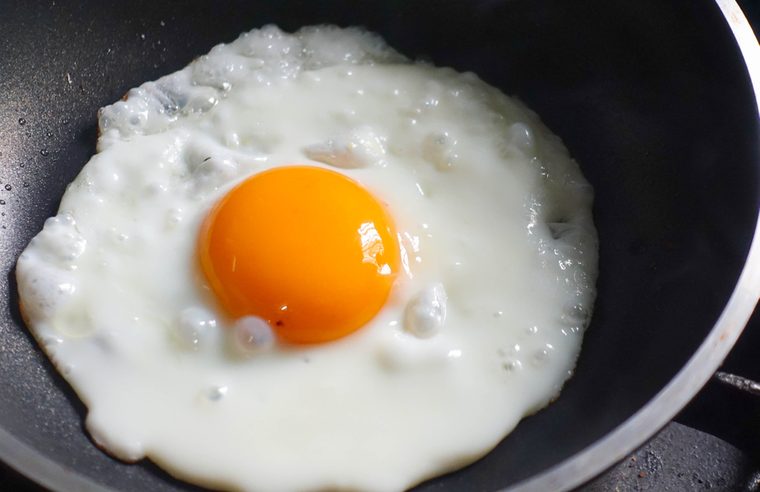
People with high cholesterol shouldn’t eat eggs
For years, doctors told patients at risk for heart disease that they should avoid high-cholesterol foods—and with 211 milligrams of cholesterol (70 percent of your daily recommendation), eggs were kept on the do-not-eat list. But now, science is changing. Recent studies have shown that high-cholesterol foods like eggs don’t actually affect blood levels of cholesterol very much. “What we eat that affects our blood serum cholesterol is … saturated fats, trans fats, and simple sugars,” says registered dietitian Marjorie Nolan Cohn, RDN, owner of MNC Nutrition in Philadelphia. Eating four or five eggs a week should still be safe for anyone at risk for heart disease, she says. Take a look at these delicious ways to cook eggs so you’ll never get bored of them.
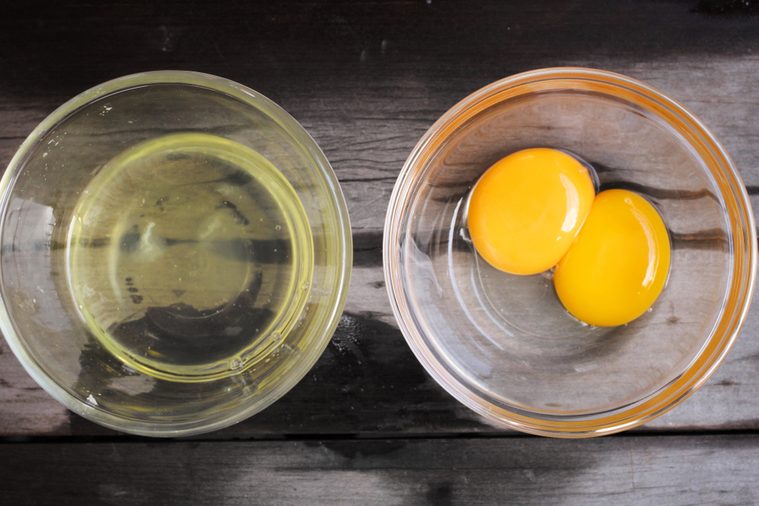
Egg whites are healthier than whole eggs
You’re bound to spot an egg white omelet on any “light breakfast” menu, and at a quick glance, you can see why. An egg white has just 17 calories—a sliver of those in a 72-calorie whole egg—and no fat. But there’s a bit more to the story, says registered dietitian Keri Glassman, RD, spokesperson for Pete and Gerry’s Organic Eggs. For one thing, the fats in a yolk are actually good for a balanced breakfast. “Fat keeps you much more satisfied,” says Glassman. “If you miss out on the yolk, you might be unsatisfied.” Plus, egg whites don’t have much going for them nutritionally except for protein, but the yolk packs in nutrients like vitamin B12, vitamin D (which can be tough to find in food sources), and choline, she adds. Here’s a closer look at egg nutrition if you want to know more.
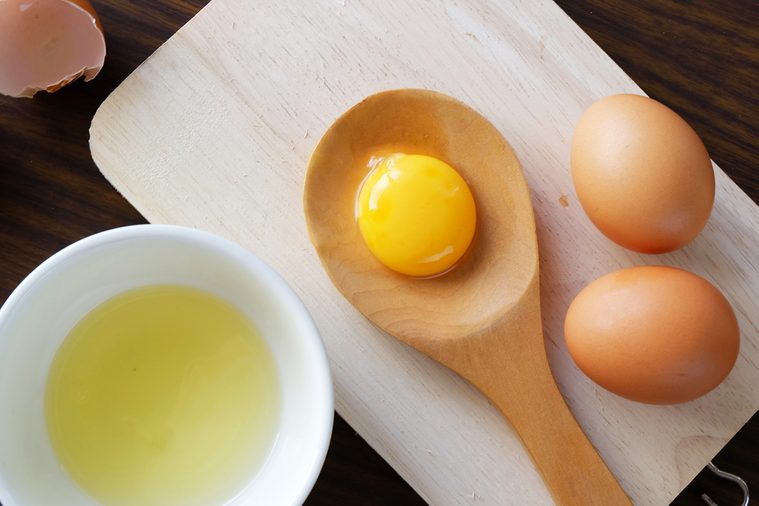
Egg whites are crazy-high in protein
Egg whites are known for being high-protein, low-calorie, but if you’re tossing the yolk for the sake of the protein load, you’re missing out. “A white has 15 calories,” says Cohn. “How much protein and how many amino acids could you actually get from like 20 calories of anything?” Keep the yolk, and not only will you get the satiating fat and health-boosting nutrients, but you’ll also double the protein content of your breakfast—about six grams compared to three. Don’t miss these other “healthy breakfast” mistakes you might have made this morning.
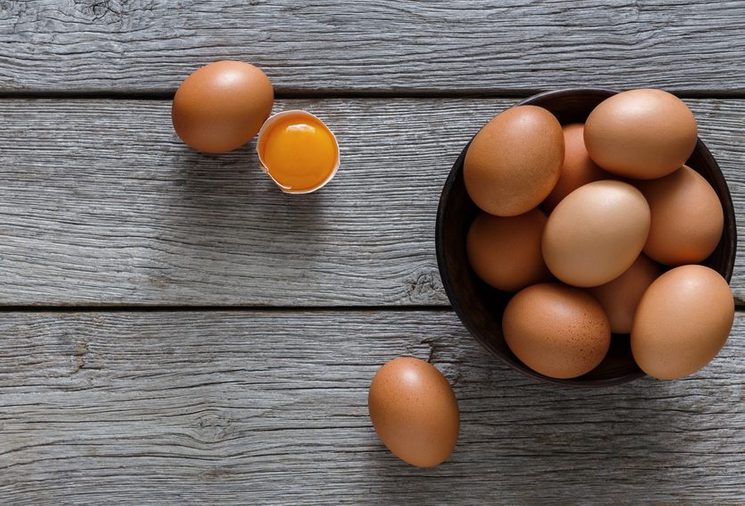
Brown eggs are healthier than white
Brown rice beats white rice; wheat bread is healthier than white; but brown eggs are not better than white eggs. “I would never recommend using the color of the egg [shell] as an indicator or reference for its nutrient quality,” says Cohn. The color difference doesn’t have to do with nutrient quality but genes—white chickens usually lay white eggs, and red or brown chickens lay brown eggs, Tro Bui, visiting fellow at Cornell University’s animal science department, told the New York Times. Brown eggs are sometimes pricier not because the chickens are better or healthier, but because they come from bigger chickens that cost more to raise, he said. Find out why egg yolks are different colors.
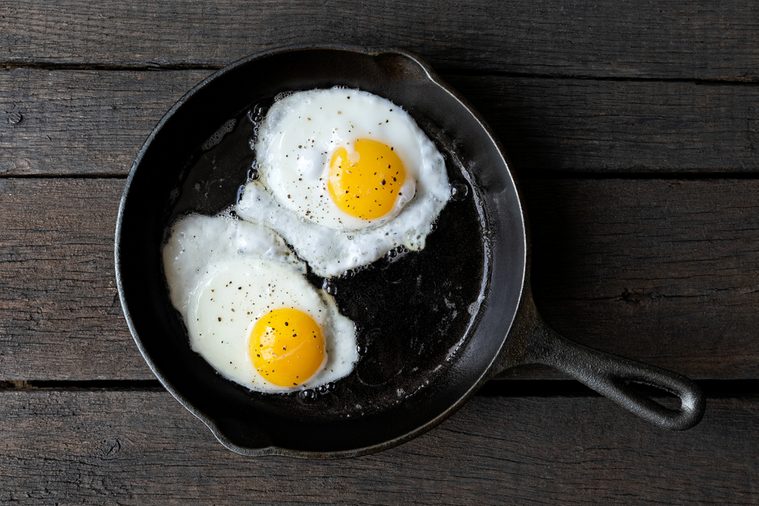
Eggs aren’t realistic for busy mornings
When you’re rushing out the door in the morning, standing over the stove and cleaning a pan are probably the last things you want to do. But eggs can absolutely fit into your morning routine, so there’s no excuse for settling for a sugary grab-and-go toaster pastry. “It’s so simple to do. You just crack an egg,” says Glassman. “I do it while I’m drinking my coffee.” For even easier options, she suggests making egg muffins or hard-boiled eggs over the weekend so they’re ready-made for the week. You can even make scrambled eggs in the microwave or buy pre-peeled hard-boiled eggs ahead of time, points out Cohn. You can also eat them at lunch or dinner—try these egg recipes that aren’t for breakfast.
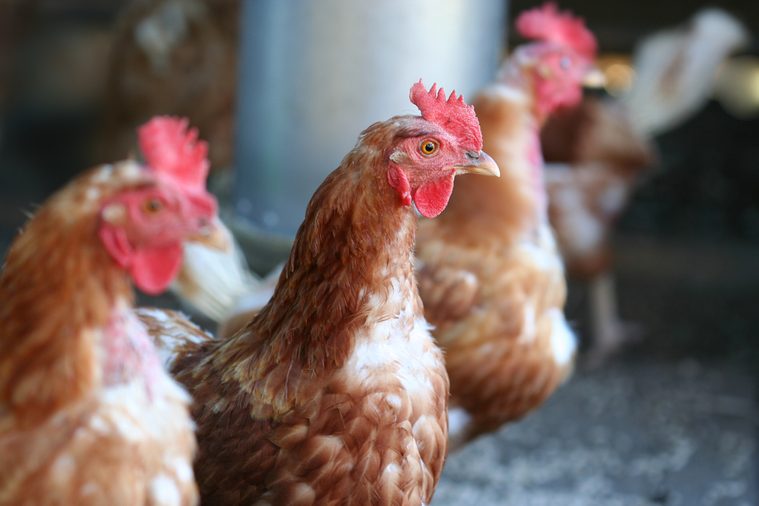
Hens that produce cage-free eggs are roaming the field
While cage-free hens obviously aren’t confined to a cage, the label might not mean what you think. “Cage-free just means they have some access outside of a cage, but it could be a tiny, tiny space, so it’s not as significant or meaningful,” says Glassman. She recommends seeking out organic, free-range eggs instead. Free-range chickens are not only left out of a cage but also have the freedom to roam around on the farm.
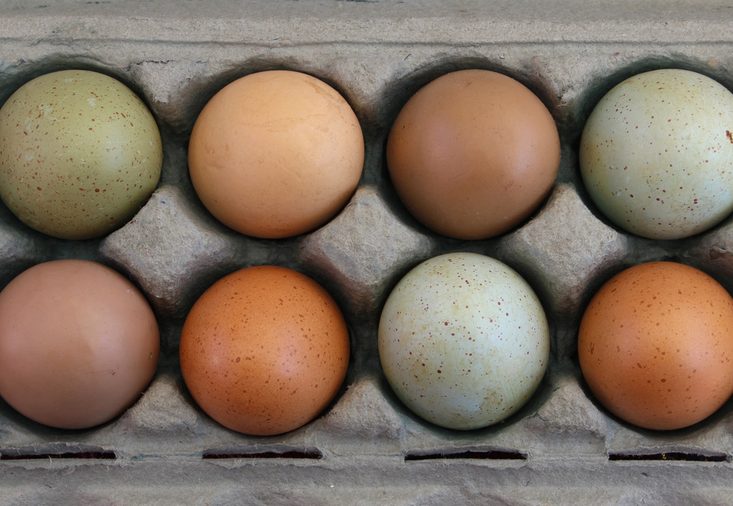
Hormone-free eggs are better for clean eating
It’s not that you need to avoid hormone-free eggs, but you should understand that the label is something of a marketing trick. Whether the label says so or not, “all eggs are not going to have hormones,” says Glassman. Antibiotic-free is more significant, she says, because some chickens do receive antibiotics. Memorize this secret technique for an extra-fluffy omelet.
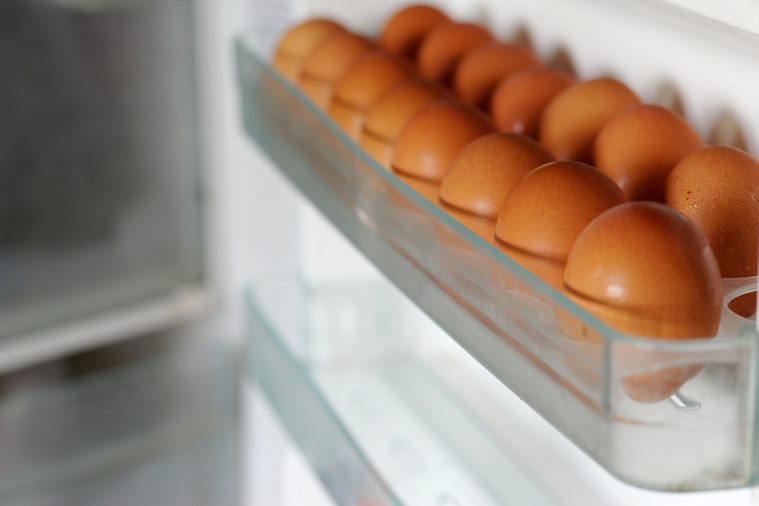
Your eggs should go on the fridge door’s egg shelf
Unless you get through eggs quickly, the egg slots on your fridge door aren’t actually the ideal place for them. “On the door, where it’s being opened and closed a lot, there are a lot of temperature shifts,” says Cohn. Tucking the carton in the back of your refrigerator will hide it from those fluctuations, so your eggs will stay fresher longer, she says. Use this trick for cracking eggs the right way.
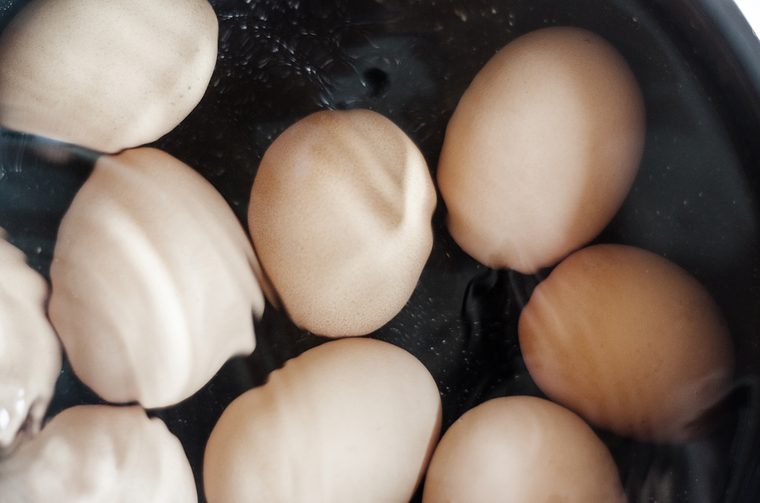
You should always use or toss eggs by the sell-by date
As long as you keep your eggs cold in the back of the fridge, you can probably get away with keeping them past the sell-by date, which will probably hit about a month after you buy the carton. “As long as they’re not cracked and they stay in the refrigerator, they’re not going to pose a safety risk after those four to six weeks,” says Cohn. To test the quality of yours, drop the egg into a glass of water. If it sinks to the bottom, it’s still good, but if air pockets have expanded and it isn’t fresh, it will float to the top.
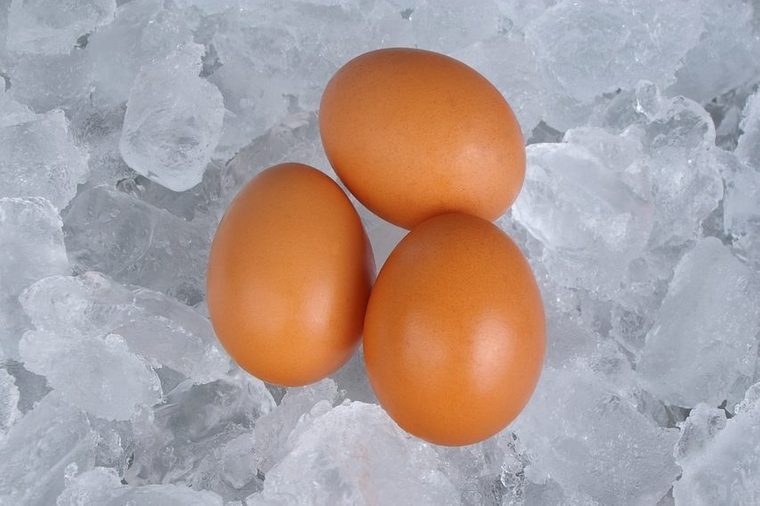
You can’t freeze chicken eggs
If your eggs are nearing that sell-by date but you don’t see yourself eating them anytime soon, they don’t need to up in the trash. Popping shelled eggs straight in the freezer won’t work because they’ll expand and break, but there is a way to extend their lifetime. Crack and lightly beat the eggs, then pour them into ice cube trays or another freezer-safe container. Defrost them when you’re ready to get cooking. “There’s no food safety issue with that, as long as you’re cautious with exposure,” says Cohn. Although she hasn’t used the technique herself, she says it might work best for recipes like cakes or meatloaf, rather than scrambled eggs, because the quality might diminish in the freezer. Check out these other 21 food myths that are wildly untrue.